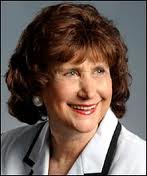Infidelity: Shattered Vows (Part 2)
By Hara Estroff Marano, Shirley Glass (edited)
Source: Psychology Today, originally published 1998.
Rebuild your relationship by rebuilding trust. Then open “windows” in the relationship.
Continued From: Shattered Vows (part 1)
HM: Are more couples trying to survive affairs these days?
SG: People are more willing to work through them. People are saying, I’m willing to work this through, but we have to solve whatever problems we have; we have to get something out of this; our marriage has to be even better than it was before.
More men are calling to come in for therapy. That’s a very positive sign. The downside is, it’s often too late. By the time men are alarmed, the woman is too distanced from the marriage.
HM: What other changes do you see in affairs these days?
SG: Cyber affairs are new. For some people the computer is very addictive. They get very caught up in it. It’s hiding out, escaping. And an affair is an escape from the realities of everyday life. These two escapes are now paired.
The other danger on-line is that people can disguise who they are. Think of the roles you can take on if you hide behind a screen. More so than in workplace affairs, you can project anything onto the other person.
You can act out any fantasy you want. You can make this other person become anybody you want them to be. There’s a loosening up, because you’re not face-to-face with the person.
HM: This attracts only a certain kind of person, doesn’t it?
SG: We don’t know yet. I always get e-mail questions from people who are concerned because their partner is having an on-line relationship with somebody Or their partner had an affair with somebody they met on-line. It’s very prevalent, and it’s very dangerous.
If you’re talking to somebody on the computer, and you begin to talk about your sexual fantasies, and you’re not talking to your partner about your sexual fantasies, which relationship now has more sexual chemistry? Which has more emotional intimacy? Then your partner walks in the room, and you switch screens. Now you’ve got a wall of secrecy. It has all the components of an affair. And it’s easy.
Technology has impacted affairs in another way, too. Many people have discovered a partner’s affair by getting the cellular phone bill, or by getting in the car and pushing redial on the car phone, or by taking their partner’s beeper and seeing who’s been calling. We’re leaving a whole new electronic trail.
HM: Has that changed the dynamics or the psychology of affairs in any way?
SG: In the past, when someone was suspicious they could ask their partner: “What’s going on? You seem distant lately.” If the partner denied anything was wrong, there wasn’t a whole lot a person could do. Now there’s tangible evidence people can utilize to find out if their hunches are indeed true.
HM: There is a public conception of affairs as glamorous, but the aftermath is pretty messy. How do we square these views?
SG: They’re both true. In those captured moments, there is passion and romance. We’re in Stage One of relationship formation — idealizing the partner. This Stage One can go on for years, as long as there’s a forbidden aspect.
The admiration and positive mirroring can go on for a long time — until you get to a reality-based relationship. And this is why so many affairs end after the person leaves the marriage.
HM: How many affairs survive as enduring relationships?
SG: Only 10 percent of people who leave their relationship for affairs end up with the affair partner. Once you can be with the person every day and deal with all the little irritations in a relationship, you’re into Stage Two: disillusionment.
HM: How do most affairs get exposed?
SG: Sometimes the betrayed partner will just ask, “Are you involved with somebody else?” Sometimes the affair partner, when it’s a woman, does something to inform the wife — she sends a letter or even shows up on the doorstep. She asks, “Do you know where your husband’s been?” Her motivation is not to be helpful but to break up the marriage. But often she’s the one who then gets left out.
Sometimes people find out in horrible ways. They read about it in the newspaper, or they get a sexually transmitted disease. Or the cell phone bill arrives. Or their partner gets arrested — if there is a sexual addiction, the partner may be caught with prostitutes. Sometimes, somebody is suspicious and checks it out by going to the hotel room to see whether their partner’s alone, or by hiring detectives.
HM: Can all relationships be fixed?
SG: No. What I look for is how the unfaithful partner shows empathy for the pain that they have caused when the betrayed spouse starts acting crazy.
HM: In what way do they act crazy?
SG: They’re very emotional. They cry easily, their emotions flip-flop. They are hypervigilant. They want to look at the beeper. They have flashbacks. In the car, they hear a country-western song and start crying or accusing. They obsess over the details of the affair. Although these are common post-traumatic reactions to infidelity, their behavior is very erratic and upsetting to them and their partner. How much compassion the partner has for that is one hallmark.
Another sign of salvageability lies in how much responsibility the unfaithful partner takes for the choice they made, regardless of problems that preexisted in the marriage. (We definitely need to work on the weaknesses of the marriage, but not to justify the affair.)
If the unfaithful partner says, “You made me do it,” that’s not as predictive of a good outcome as when the partner says, “We should have gone to counseling to deal with the problems before this happened.” Sometimes the unfaithful partner doesn’t regret the affair because it was very exciting.
One of the big strains between the partners in the primary relationship is the way they perceive the affair partner.
HM: How so?
SG: A lot of the anger and the rage the betrayed spouse feels is directed toward the affair partner rather than the marital partner: “That person doesn’t have any morals; …. That person’s a home wrecker.” To believe that of the marital partner would make it difficult to stay in the relationship.
At the same time, the person who had the affair may still be idealizing the affair partner. The unfaithful spouse perceives the affair partner as an angel, whereas the betrayed person perceives them as an evil person.
It’s important at some point in the healing process for the involved person to see some flaws in the affair partner, so that they can partly see what their partner, the betrayed spouse, is telling them. It’s also important for the betrayed spouse to see the affair partner not as a cardboard character but as a human being who did some caring things.
HM: Is there anything else that helps you gauge the salvageability of a relationship after an affair?
SG: Empathy, responsibility — and the degree of understanding of the vulnerabilities that made an affair possible.
HM: What vulnerabilities?
SG: There are individual vulnerabilities, such as curiosity. Somebody gets invited for lunch, and they go to the house because they’re curious. They must learn that getting curious is a danger sign. Or if some damsel or guy in distress comes with a sad story, they learn to give out the name of a great therapist instead of becoming their confessor and confidante. Knowing what the vulnerabilities are helps you avoid them.
HM: And relationship vulnerabilities?
SG: The biggest one I see today is the child-centered marriage. I tell couples, If you really love your kids, the best gift you can give them is your own happy marriage. You can’t have a happy marriage if you never spend time alone. Your children need to see you closing the bedroom door or going out together without them. That gives a sense of security greater than what they get by just by being loved.
Today’s parents feel guilty because they don’t have enough time with their kids. They think they’re making it up to them by spending with them whatever leisure time they do have. They have family activities and family vacations. To help them rebuild the marriage, I help them become more couple-centered.
HM: There has to be a separate layer of adult relationship?
SG: The affair represents a man and a woman getting together in a dyad and just devoting themselves to each other. Very busy couples sometimes have to actually look at their calendars and find when they can spend time together.
HM: Are there other vulnerabilities?
SG: One is getting too intimate with coworkers. One way to guard against danger is, if there’s somebody you really like at work, then include them as a couple; invite that person and their partner to come over so that there isn’t a separate relationship with that person. That’s not a guarantee; people do have affairs with their best friend’s spouse.
HM: Can you tell whether someone is secretly continuing the affair?
SG: A sign that the affair is continuing is when the unfaithful partner isn’t doing anything caring and keeps making excuses — I don’t feel it yet,” or “It would be false if I did it now.” Sometimes it feels disloyal to the affair partner to be too caring.
HM: Is it hard to get over an affair without a therapist?
SG: It’s hard to do with a therapist. People can get over it, but I don’t know that they resolve the issues. Usually the unfaithful person wants to let it rest at “Hi hon, I’m back. Let’s get on with our lives. Why do we have to keep going back over the past?” The betrayed person wants to know the story with all the gory details. They may begin to feel they’re wrong to keep asking and may suppress their need to know because their partner doesn’t want to talk about it. They may stay together, but they really don’t learn anything or heal.
HM: Can it ever be the same as it was before?
SG: The affair creates a loss of innocence and some scar tissue. I tell couples things will never be the same. But the relationship may be stronger.
HM: How do you rebuild trust?
SG: Through honesty. First, I have to build safety. It comes about by stopping all contact with the affair partner and sharing your whereabouts, by being willing to answer the questions from your partner, by handing over the beeper, even by creating a fund to hire a detective to check up at random.
It also requires sharing information about encounters with the affair partner before being asked; when you come home, you say, “I saw him today, and he asked me how we’re doing; I said, I really don’t want to discuss it with you.”
That’s counter-intuitive. People think that talking about it with the spouse will create an upset, and they’ll have to go through the whole thing again. But it doesn’t. Instead of trying to put the affair in a vault and lock it up, if they’re willing to take it out and look at it, then the trust is rebuilt through that intimacy. The betrayed spouse may say, “I remember when such-and-such happened.” If the unfaithful spouse can say, “Yeah, I just recalled such-and-such,” and they bring up things or ask their partner, “How are you feeling? I see you’re looking down today, is that because you’re remembering?,” trust can be rebuilt.
HM: Eventually, the questioning and revealing assume a more normal level?
SG: Yes, but things will often pop up. Someone or something will prompt them to remember something that was said. “What did you mean when you said that?” Or, “What were you doing when that happened?”
In the beginning, the betrayed partner wants details. Where, what, when. Did you tell them you love them? Did you give them gifts? Did they give you gifts? How often did you see them? How many times did you have sex? Did you have oral sex? Where did you have sex, was it in our house? How much money did you spend? Those kinds of factual questions need to be answered.
Eventually the questions develop more complexity. How did it go on so long if you knew that it was wrong? After that first time, did you feel guilty? At that point they’re in the final stages of trauma recovery, which is the search for meaning.
HM: And they have come to a joint understanding about what the affair meant?
SG: By combining their stories and their perceptions. A couple builds trust by rewriting their history and including the story of the affair. Some couples do a beautiful job in trying to understand the affair together, and they co-create the story of what they’ve been through together. When couples really are healed, they may even tease each other with private little jokes about something that they know about the affair partner or about something that happened during the affair. You can see that they finally have some comfort with it.
One of the signs that they are working in a much more united way is that their perception of the affair partner becomes more integrated — not all evil or all angel, but a human being who perhaps did manipulate but also was caring.
HM: Some people, particularly men, are philanderers; they have repeated affairs. What’s going on?
SG: First of all, there are different kinds of philanderers. Sometimes it’s easier to deal with this kind of infidelity, because there isn’t the emotional involvement; sometimes it’s harder, because it’s such an established pattern.
One question I explore with somebody who has had lots of sexual relationships is whether it’s an addiction or, in the case of men particularly, a sense of entitlement. There are some women now in positions of power who also seem to be treating sex in the same casual way and exploiting power in the same way as male philanderers. Nevertheless, in our culture, there is a sense of male privilege that condones and even encourages affairs.
HM: How does entitlement affect matters?
SG: If a man feels entitled, he experiences little guilt. Also, it is not necessarily a compulsive behavior; he has the ability to choose to stop it — if he changes his attitudes, if he sees what the consequences are, if he comes to believe that marriage means more than being a provider but being a loving father or caring husband. Even if he doesn’t see anything wrong with philandering, if he can see the pain it causes someone he loves, he may really make the vow not only to his partner but to himself.
A sexually addicted person usually uses sex the way others use drugs: they get anxious, they say they’re not going to do it, but then they’re driven toward it. They get a momentary gratification followed by remorse. They decide they’re not going to do it again, then they do.
HM: There’s a compulsive quality.
SG: There is also often remorse and guilt. If they get into therapy, they may learn what addiction means in their life. Often, there’s an emptiness that’s linked to a need for excitement. There may be an underlying depression. They then begin to deal with the underlying source of that compulsive behavior.
There may be a history of incest or sexual abuse. Some women may be turning the tables by using their sexuality to control men rather than be controlled by them, or they may be using sex as a way to get affection, because they don’t believe that they can get it any other way. Some people may be acting out like rebellious adolescents against a spouse who is too parental.
HM: What is happening in relationships that are parental or otherwise unequal?
SG: Sometimes there is an overfunctioning spouse and an underfunctioning spouse. One partner takes on a lot of responsibility — and then resents it. The more a person puts energy into something and tries to work on it, the more committed to the relationship that person is. The other partner, who is only semi-involved in the relationship, is freer to get involved in an affair; they’re not as connected to the marriage.
This is interesting because the popular notion is that the person who has the affair wasn’t getting enough at home. The reality is that they weren’t giving enough at home.
HM: How do you handle that?
SG: In rebuilding that relationship, more equity has to be created. The issue isn’t what can the betrayed spouse do to make the partner happy — it’s what can the unfaithful spouse do to make their partner happy. In research and in practice, my colleague Tom Wright, Ph.D., and I have observed that when you compare who does more — who is more understanding, who is more romantic, who enjoys sex more — the affair is almost always more equitable than the marriage. Usually, the person was giving more — more time, more attention, more compliments — in the affair than in the marriage. If they can invest in the marriage what they were doing in the affair, they’ll feel more.
There is some research showing that people are more satisfied in equitable relationships. When relationships are not equitable, even the overbenefited partners are not as satisfied as those in equitable relationships.
HM: You seem to be constantly reversing the conventional wisdom about affairs.
SG: I’ve noticed that when younger women get involved in affairs early in the marriage and then leave, often they have not been invested in the marriage. They’re working hard, climbing a ladder; the husband is the one making dinner while she’s working late. He is the devastated one, because he is really committed and has given a lot. But he is peripheral in her life.
I’ve seen several couples who had a plan they agreed on, to build a house, or for one partner to go back to school. The person who had the responsibility for carrying out the plan was totally engrossed in it, while the other person felt so neglected that they then had an affair. The betrayed person felt terribly betrayed, because he or she thought he was working for their future. But he didn’t necessarily listen to distress signs.
A relationship is like a fire. You can let it go down, but you can’t let it go out. Even though you’re in another part of the house, you have to go back every once in a while to stoke the coals.
HM: Do you ever counsel people directly to leave a relationship?
SG: I would support a betrayed spouse ending the relationship if a period of time has gone by in which they have tried to work on the relationship but the affair continues secretly.
Leaving a bad marriage without trying to repair it first is like buying high and selling low. Better to see how good you can make it, then look at it and ask: Is this good enough?
HM: What percentage of couples make it?
SG: Those who stay in therapy and have stopped the affair have a real good chance. After an affair is first uncovered and the involved person vows to stop it, it usually doesn’t stop right away. That would be coitus interruptus; there has to be some kind of closure. There will be secret meetings to say good bye or to make sure that you can really let go. But that should happen in the first few weeks or months.
HM: Are some occupations or settings particularly conducive to affairs?
SG: I don’t know any place where the risk is low. When I was doing research for my dissertation, I went to the Baltimore-Washington airport and to an office park and gave out questionnaires. I’d go up to the men, quite imposing in their pinstripe suits and starched collars, and ask if they’d complete an anonymous research questionnaire on marriage.
I was stunned when the forms came back; so many of the men who had looked so conservative had engaged in extramarital sex. It is now known that, while we suspect the liberals, conservative men are actually more likely to be having extramarital affairs — because they split sex and affection. There are the nice girls you marry and the wild girls you have sex with.
HM: The double standard is alive and well.
SG: Men who score high on traits of authoritarianism are more likely to separate sex and affection than men who are low in authoritarianism. Military officers fall into this category.
People in high-drama professions — among doctors, those in the ER, trauma surgeons, cardiologists — engage in a certain amount of living on the edge that is associated with affairs. Certainly, being in the entertainment business is a risk; there’s a lot of glamour, and people are away from home a lot. Often you’re in a make-believe world with another person.
HM: To hear that a person can be happily married and having an affair is surprising.
SG: I often get asked, “How can women stay with men who have repeated affairs?” Many people believe the Clintons have some kind of an arrangement.
I don’t know anything about their marriage, but I do know that it’s more comfortable for people to believe they have an arrangement. When something bad happens to others, we distance ourselves from it, try to find an explanation that couldn’t possibly apply to us.
HM: You use the metaphor of walls and windows in talking about affairs.
SG: There is almost always a wall of secrecy around the affair; the primary partner does not know what’s happening on the other side of that wall. In the affair, there is often a window into the marriage, like a one-way mirror.
To reconstruct the marriage, you have to reverse the walls and windows — put up a wall with the affair partner and put up a window inside the marriage. Answering a spouse’s questions about what happened in the affair is a way to reverse the process. It’s a matter of who’s on the inside and who’s on the outside. Sometimes people will open windows but not put up walls. Sometimes they put up walls but don’t open the windows. Unless you do both, you cannot rebuild safety and trust in the marriage.
[hr]














